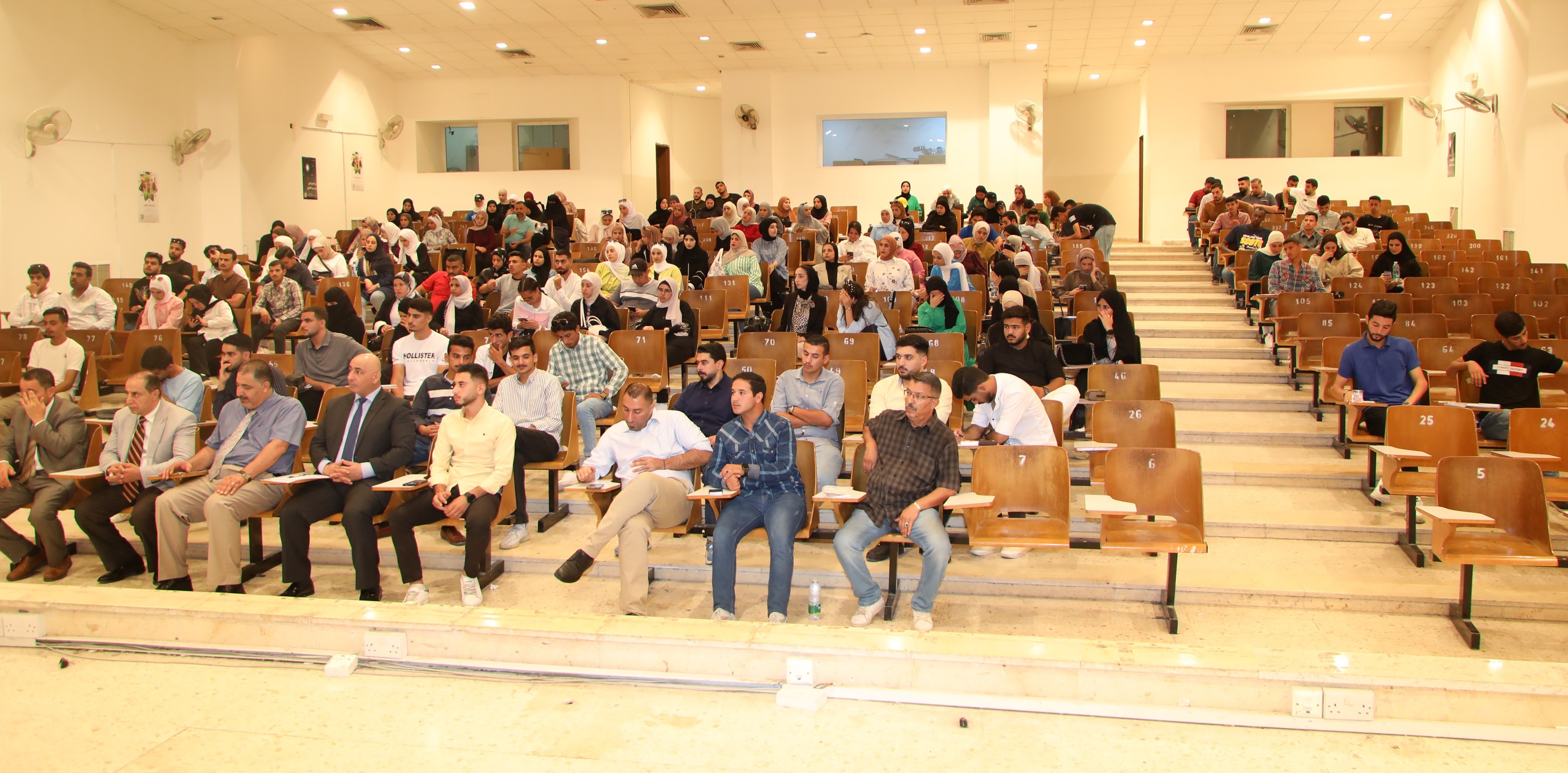The university is organizing a seminar on "Youth Participation in the Parliamentary Elections."

The University of Al al-Bayt, represented by the Faculty of Arts and Humanities and the Bayt Al-Hikma College of Political Science, organised a seminar on "Youth Participation in Parliamentary Elections", attended by the Dean of Student Affairs, Professor Dr. Saif Al-Shabil, Professor Dr. Said Abu Khader, Dean of the Faculty of Arts, and Professor Dr. Ahed Abu Dhweib, Dean of Bayt Al-Hikma, along with a number of faculty members, interested parties, and university students, held in the Abu Ubaida auditorium.
In the first session, Dr. Sa’il Al-Sarhan, a political science professor, stated that there is a serious political will and legislation regulating political life, emphasising that youth are the backbone of Jordanian society and hold significant importance in the thoughts of His Majesty King Abdullah II. He noted that their substantial proportion in society necessitates their effective economic and political contributions to significantly foster development and its benefits, ensuring their constant presence in the political process and its practices.
In the second session, Professor of History Dr. Anwar Al-Khalidi discussed the political scene and the transformations witnessed in Jordan, highlighting the role of Jordanian youth. He stressed that the importance of the House of Representatives lies in its legislative role for all systems and laws governing life in its various aspects. He reiterated the role of the Crown Prince Foundation through the "I Participate" programme, indicating that the university is always proactive in empowering youth and encouraging them towards fulfilling their national duties.
For his part, Dr. Abdullah Al-Arqan explained the concept of political participation, describing it as the set of practices carried out by youth through their involvement in decision-making. He outlined the key stages of political participation and the significance of youth roles in political engagement and voluntary work, which are essential traits that Jordanian youth should embody.
At the end of the seminar, a discussion took place between the panellists and students, who addressed their questions and inquiries. The session was moderated by Professor Dr. Fathi Al-Shawawreh from the History Department, who highlighted to the attending students the benefits of active participation and enabling them to exercise their democratic rights, explaining the penalties related to misuse of social media, citing Article 15 of the Electronic Crimes Law No. 17.